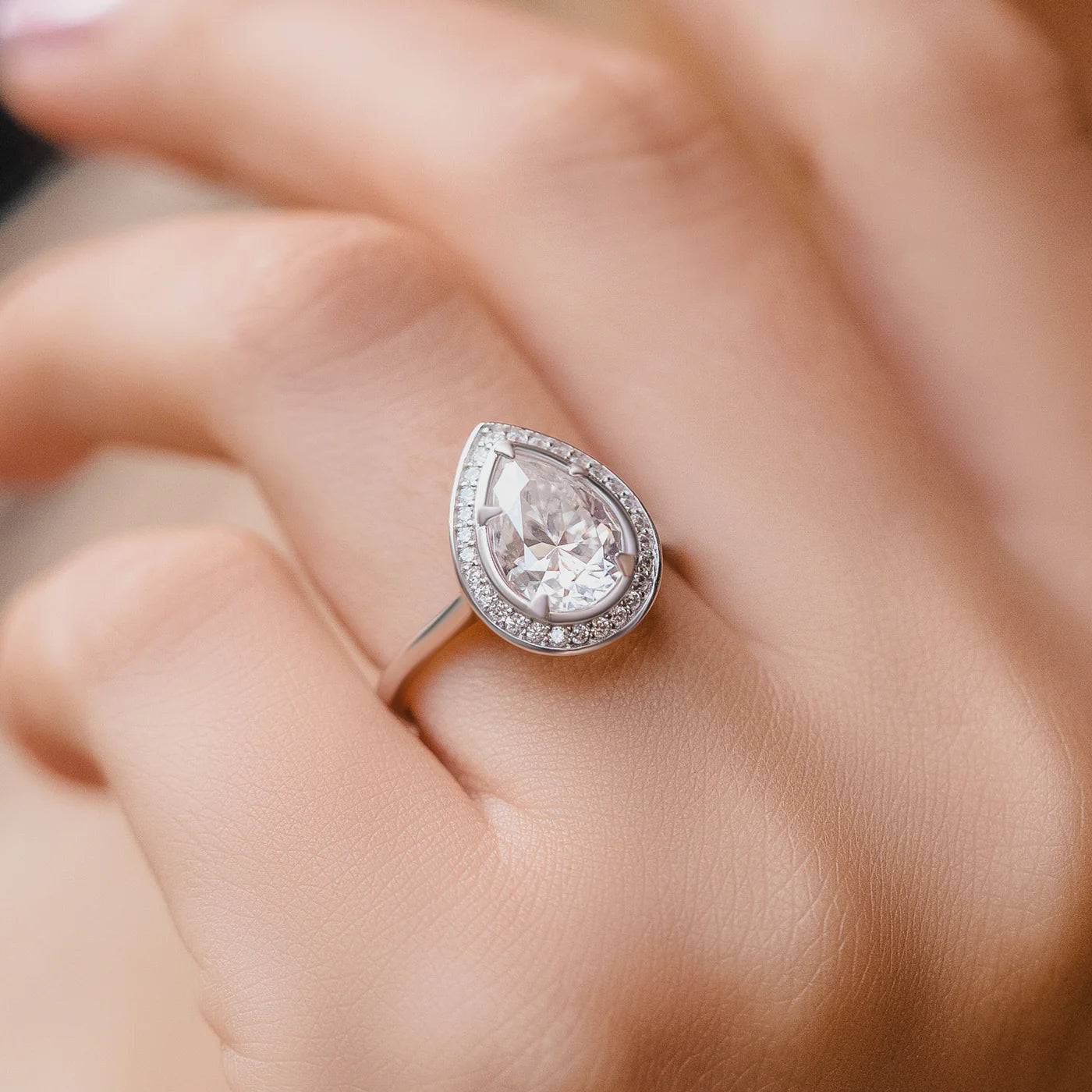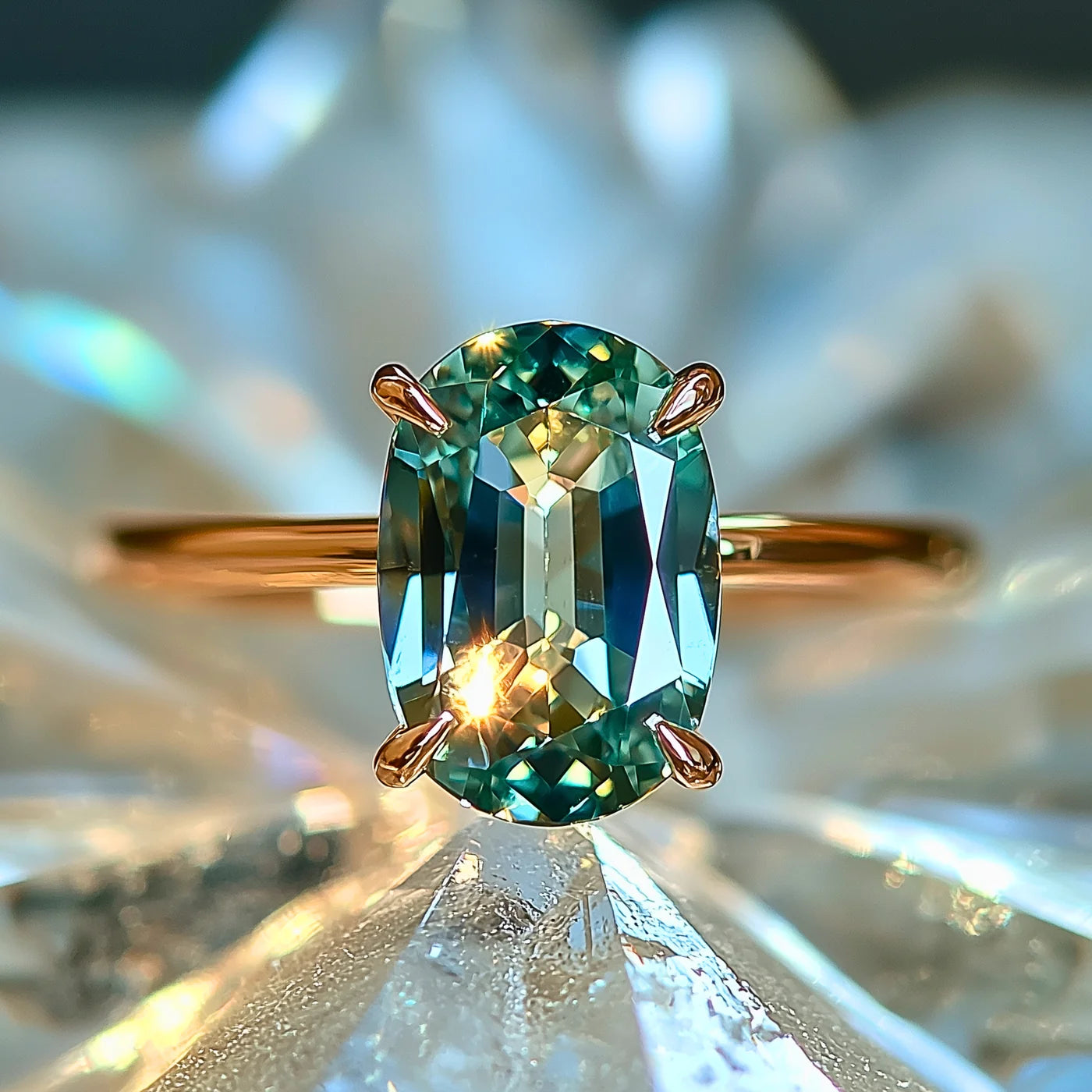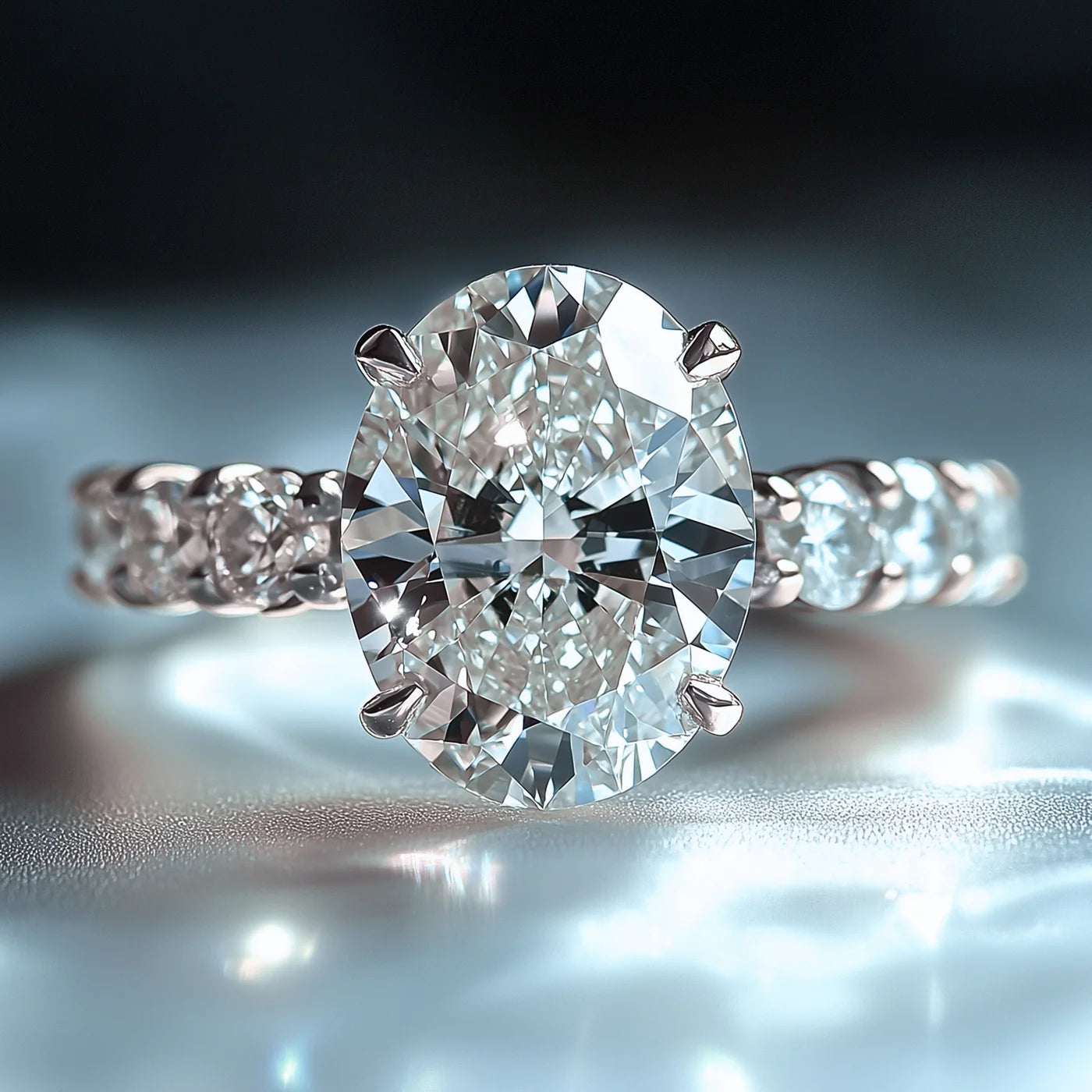
White Zircon vs Moissanite: Which Gemstone Sparkles Brightest?
When it comes to stunning alternatives to diamonds, two contenders often shine brightest: white zircon and moissanite. But how do these dazzling gems really stack up? Let's dive into the sparkling world of white moissanite and zircon to help you choose the perfect stone for your next piece of jewelry.
Zircon vs Moissanite: At a Glance
| Feature | Zircon | Moissanite |
|---|---|---|
| Hardness (Mohs scale) | 6.5 - 7.5 | 9.25 |
| Brilliance (Refractive Index) | 1.93 - 2.01 | 2.65 - 2.69 |
| Fire (Dispersion) | 0.039 | 0.104 |
| Durability for Daily Wear | Moderate | Excellent |
| Color Consistency | Variable | High |
Moissanite outperforms zircon in key areas, making it a superior choice for fine jewelry.
The Basics: What Are White Zircon and Moissanite?
First things first, let's clear up a common misconception. White zircon isn't the same as cubic zirconia! Zircon is a natural gemstone that's been around for ages, while moissanite is a relative newcomer with a fascinating origin story.
White Zircon: Nature's Sparkler
Zircon is a naturally occurring mineral that's been adorning jewelry for centuries. Its white variety offers a brilliant sparkle that's often compared to diamonds. Fun fact: zircon is one of the oldest minerals on Earth, with some crystals dating back 4.4 billion years!
Moissanite: The Space Gem
Moissanite, on the other hand, has an otherworldly origin. It was first discovered in a meteor crater by French scientist Henri Moissan in 1893. While natural moissanite is incredibly rare, today's moissanite jewelry is created in labs, allowing for consistently high-quality stones.
Sparkle Showdown: Brilliance and Fire
When it comes to sparkle, both white zircon and moissanite pack a serious punch. But there are some key differences:
- Brilliance: Moissanite takes the crown here. It has a higher refractive index than both zircon and diamonds, meaning it returns more light to your eye for that extra wow factor.
- Fire: Moissanite also wins in the fire department. Its dispersion (the rainbow effect) is more than twice that of diamond and significantly higher than zircon.
- Overall Appearance: Zircon has a softer, more diamond-like sparkle, while moissanite's intense fire can sometimes give it away as a diamond alternative (though many people love this unique look!).
If you're after maximum sparkle, our moissanite rings collection showcases this gem's incredible light performance.
Durability: Built to Last?
When investing in jewelry, durability matters. Here's how these gems compare:
Moissanite: With a hardness of 9.25 on the Mohs scale, moissanite is incredibly durable and resistant to scratching. It's perfect for everyday wear, even in engagement rings.
Zircon: Zircon is softer, ranging from 6.5-7.5 on the Mohs scale. While still suitable for jewelry, it requires a bit more care to prevent scratching and chipping, especially in rings.
Price Point: Budget-Friendly Beauties
Both white zircon and moissanite offer significant savings compared to diamonds. Zircon is generally the more affordable option, but moissanite's superior durability and brilliance often make it worth the slightly higher price tag for many buyers.
Our best-selling moissanite jewelry collection offers stunning pieces that won't break the bank.
Color and Clarity: The Clear Winner
When it comes to color, both gems can appear colorless, but there are some nuances:
Moissanite: High-quality moissanite is consistently colorless, especially in smaller sizes. Some larger stones may have a slight yellow or gray tint, but this is becoming less common with improved production techniques.
Zircon: While white zircon can be colorless, it often has a slightly blue or yellow tint. This can add to its charm but may not be ideal if you're after a perfect diamond lookalike.
In terms of clarity, lab-created moissanite typically has fewer inclusions than natural zircon.
Ethical and Environmental Considerations
If sustainability is important to you, both white zircon and moissanite have their merits:
Zircon: As a natural gemstone, zircon mining can have environmental impacts. However, many sources practice responsible mining techniques.
Moissanite: Lab-created moissanite has a smaller environmental footprint and avoids ethical concerns associated with some gemstone mining practices.
At Awareness Avenue, we're committed to ethical sourcing. Check out our About Us page to learn more about our values.
Making Your Choice: Zircon or Moissanite?
Ultimately, the choice between white zircon and moissanite comes down to personal preference. Here's a quick recap:
Choose Moissanite if:
- You want maximum brilliance and fire
- Durability is a top priority
- You're after a consistent, high-quality look
- You prefer lab-created gemstones
Choose White Zircon if:
- You prefer a softer, more diamond-like sparkle
- You're drawn to natural gemstones
- You're working with a tighter budget
- You don't mind a bit more maintenance
Whichever you choose, both white zircon and moissanite offer beautiful, ethical alternatives to diamonds. Ready to see some stunning examples? Browse our moissanite collection for inspiration!
FAQs: Zircon vs Moissanite
Q: Is white zircon the same as cubic zirconia?
A: No, they're different gemstones. Zircon is a natural mineral, while cubic zirconia is synthetic.
Q: Can moissanite pass as a diamond?
A: To the untrained eye, moissanite can often pass as a diamond, especially in smaller sizes. However, its unique fire and brilliance can sometimes give it away.
Q: Which is more durable, zircon or moissanite?
A: Moissanite is significantly more durable than zircon, with a hardness of 9.25 compared to zircon's 6.5-7.5 on the Mohs scale.
Q: Are zircon and moissanite good for engagement rings?
A: Moissanite is excellent for engagement rings due to its durability and brilliance. Zircon can work but may require more care and is better suited for occasional wear.
Ready to find your perfect gem? Explore our moissanite ring collection and discover the sparkle that speaks to you!



Leave a comment
This site is protected by hCaptcha and the hCaptcha Privacy Policy and Terms of Service apply.